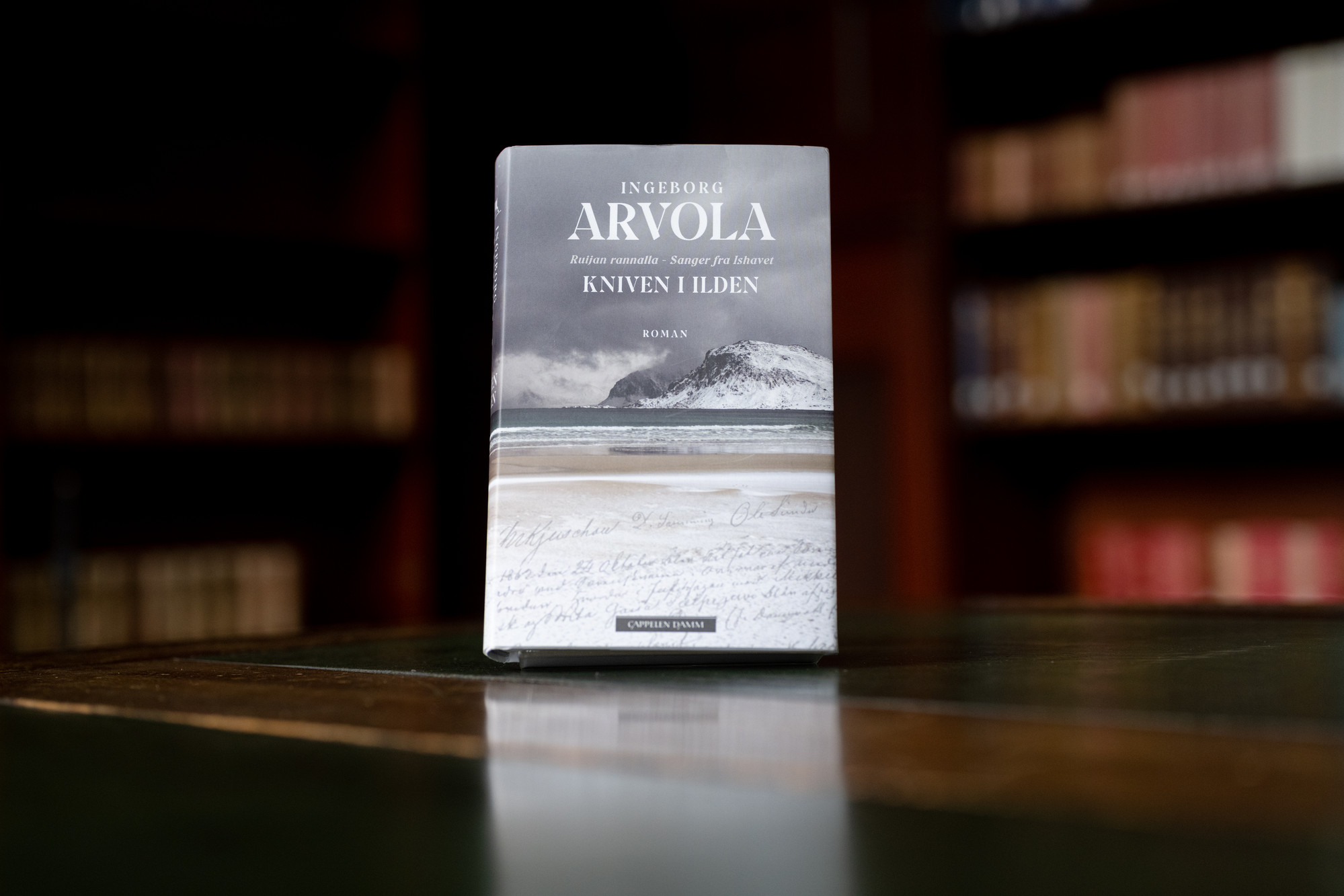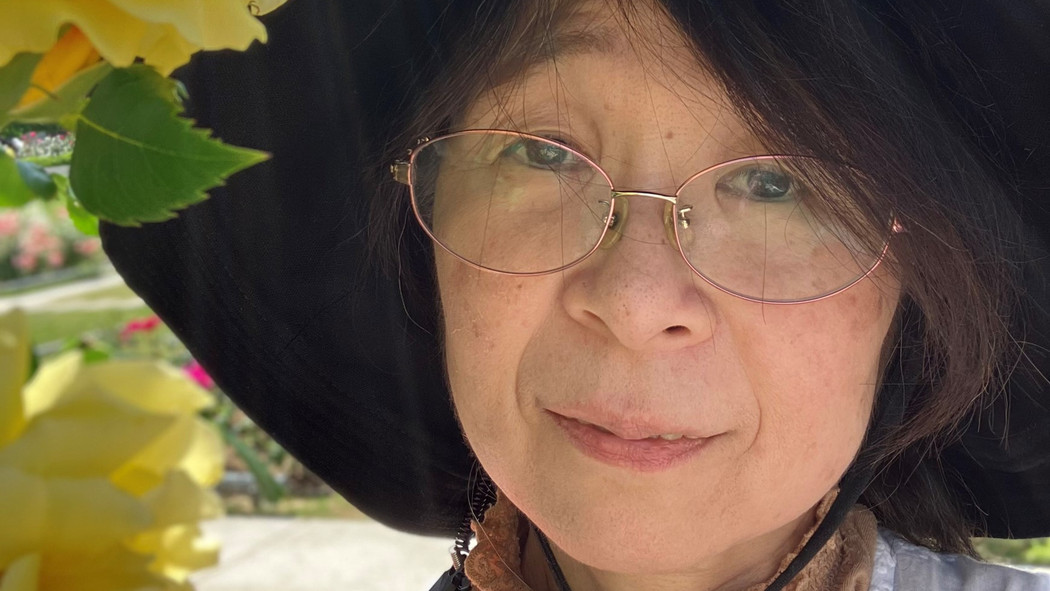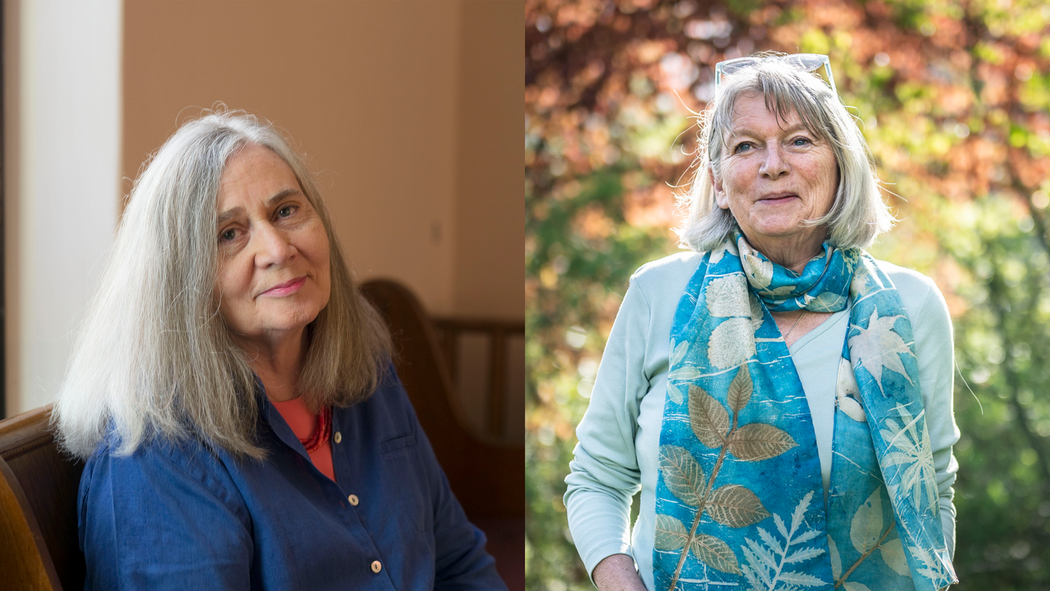Meet Ingeborg Arvola - Selected Title Author
We are happy to present our selected title author Ingeborg Arvola. She has written The Knife in the Fire – Ruijan rannalla/Songs from the Arctic Ocean (original title: Kniven i ilden. Ruijan rannalla/Sanger fra Ishavet).
The book is one of NORLA’s Selected Titles of the autumn 2022.
Read our short interview with Ingeborg here.

What is the book about?
In 1859, Brita Caisa emigrates from Finland to Finnmark with her sons, Aleksi and Heikki. During her journey, she is asked to use her warm hands. As she comes too late for the spring fishing, she stays in Neiden to work at a farm until next year’s fish. Fate sends her to Askalaiset, where the competent, but childless, farmhands Askan-Mikko and Gretha Lisa live. An attraction arises between Brita Caisa and Mikko. When they go off to Pykeijä for the spring fishing, Brita Caisa forgets all about finding a good man to marry. All she thinks about is Mikko. Finally, they are unable to resist one another. Mikko leaves his wife to live with Brita Caisa, but Gretha Lisa doesn’t want to lose her husband, and reports them for the affair.
The love story is set in the Kven society of the 1860s. Fishing and labor are central. People have a strong divine faith, and equally strong superstitious belief. Three families often share a living room where oral storytelling is alive and well. Many dream of America, but most people settle for weekly sauna.
What inspired you to write this book?
“And then Priita-Kaisa from Sodanyklä came to the area, and Mikko left both farm and land…” is written in The People of Finnmark by the ethnographer Samuli Paulabarjus, a quote which also opens The Knife in the Fire.
Actual events form the foundation of my literary novel. It started with my desire to write about my great-great-great-grandmother, Eva Niva. I read up on the history and was enraptured by the material. I realized I wanted to write about my foremothers, and had to find out who came first, and I found a news clipping from 1859 about my great-great-great-grandmother Brita Caisa Seipajærvi. Askan-Mikko really does leave farm and land to be with her. His wife reports them for unmarried cohabitation in 1861. The first verdict against Brita and Mikko is taken in October 1862.
First, I simply wanted to write the love story the tradition tells, but then I realized I also had to write more expansively to show the religious faith, superstition, labour, societal upheaval, the organization of state power, and how people lived in South Varanger in the years around 1860.
Read more
See full presentation of the book here
Read more about the author here
See all NORLA’s Selected Titles for the autumn 2022 here



